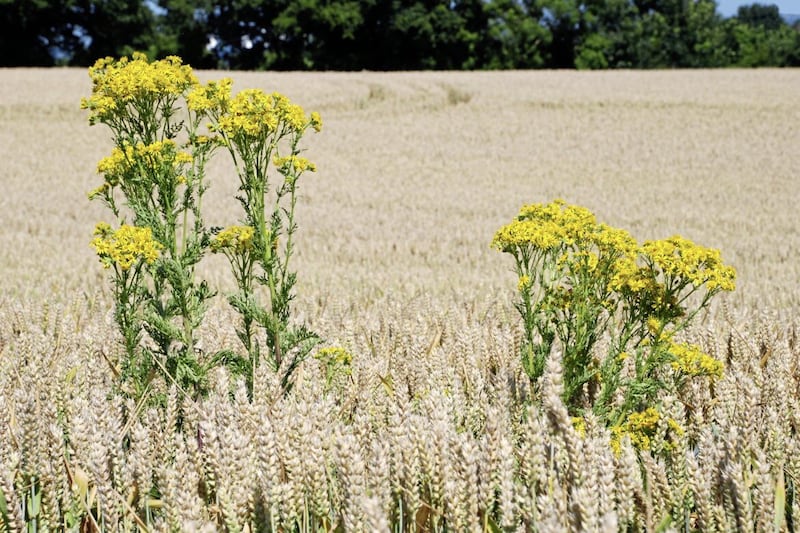TWO seminal events in Ireland's history - the Easter Rising and the Battle of the Somme - will be the focus of a major conference being held by the Presbyterian Church in Belfast today.
It will be the first major assessment of 1916 in a centenary year which will see a variety of Churches and faith groups grapple with how the events of the past have shaped our present, and what that might mean for the Ireland of the future.
Today's event - 'The Future of Our Past: Remembering and Reassessing 1916' - will seek to explore the events of 100 years ago and discuss how they came to exert such a central place in the Irish psyche.
Among those attending the conference is Heather Humphreys, the Republic's Minister of Arts, Heritage and the Gaeltacht, along with leading academics and commentators.
The conference will also consider wider questions around current relationships in Ireland that have been shaped by the events of 1916 and address ways in which conversations about the future can be reformed.
Professor Stafford Carson, principal of Union Theological College and one of the conference organisers, said he hoped today's gathering would make a positive contribution to the public debate around Ireland's history.
"The Easter Rising and the Battle of the Somme have been assimilated into the mythology of Irish history and as a result, they have helped us to create conflicting accounts of the past," he said.
"Both were important historical events in their own right. Their significance however, also lies in how both came to be understood as iconic moments in the emergence of the Republic of Ireland and Northern Ireland."
Prof Carson said that by positioning the Easter Rising and the Battle of the Somme in their historical context, he hoped it would "help us to consider their implications for today".
"Indeed, we hope that this conference will help to open up the conversation about how we might work together for the common good in the context of different understandings of the past," he said.
Heather Humphreys - the only Presbyterian member of the Oireachtas - said that debate and analysis was "a very important element of our commemorative programme for 2016".
"By exploring our shared history we can better understand and respect the differing traditions on this island," she said.
Historians Dr Fearghal McGarry and Prof Keith Jeffery, commentators Ruth Dudley Edwards and Eamonn Mallie and Dr Trevor Morrow, a former Presbyterian minister in Lucan, Co Dublin and a past moderator of the Church, are among today's other speakers.
Meanwhile, the Catholic bishops have called for 1916 to be remembered with "a vision for a just and compassionate society".
The Easter Rising and the Battle of the Somme had "a profound impact on national identity and shaped the political landscape in ways that can still be felt one hundred years later," they said in a statement.
"The commemorations thus have the potential to stimulate much-needed reflection on where we are as a society and what we want to achieve for the future," they said.
"Churches have a particular responsibility to outline the Christian values that shape our understanding of these transformative events and provide spaces where the challenging questions raised can be addressed in a spirit of understanding and compassion."
The bishops said it was encouraging that the landmark centenaries already commemorated this decade had not resulted in the reopening of old wounds.
"Particularly positive have been those initiatives that have engaged young people in learning about this important period of our history," they said.
"The 1916 centenaries will be more challenging still, bringing to the fore the way in which the militarisation of politics and government - both on this island and across the world - impacted on society.
"There is much that separates these two events, but there are also important common denominators, most notably the tragic loss of life - primarily the lives of young people, many of whom were prepared to give their lives for their values, for their vision of the nation and its place in the world."
The overwhelming majority who had endorsed the Good Friday Agreement and other peace initiatives demonstrated that people throughout Ireland had "expressed their commitment to non-violent means of conflict resolution", they said.
"It is time to challenge ourselves, however, to reflect on whether we have been sufficiently courageous in promoting a radical culture of peace," said the bishops, who also noted that the Catholic Church was celebrating a Holy Year of Mercy in 2016.
"The challenges before us as a society today - addressing violence and injustice, combating poverty and social exclusion, adopting a fair and sustainable approach to the consumption of goods and resources, welcoming refugees and promoting respect for religious faith, culture and identity - will require generosity of spirit and an openness to new relationships," they said.
"Churches have a particular responsibility to bring a message of hope to those who are suffering and those who are feeling disconnected from society. We remember Christ's message to His disciples when He found them gathered in fear: 'Peace be with you'.
"In 2016 we need to hear a renewed commitment to peace articulated from all sectors of society, supported by a clear analysis of the remaining obstacles to peace, the threats to social cohesion, and the steps we need to take as a society to address them."








